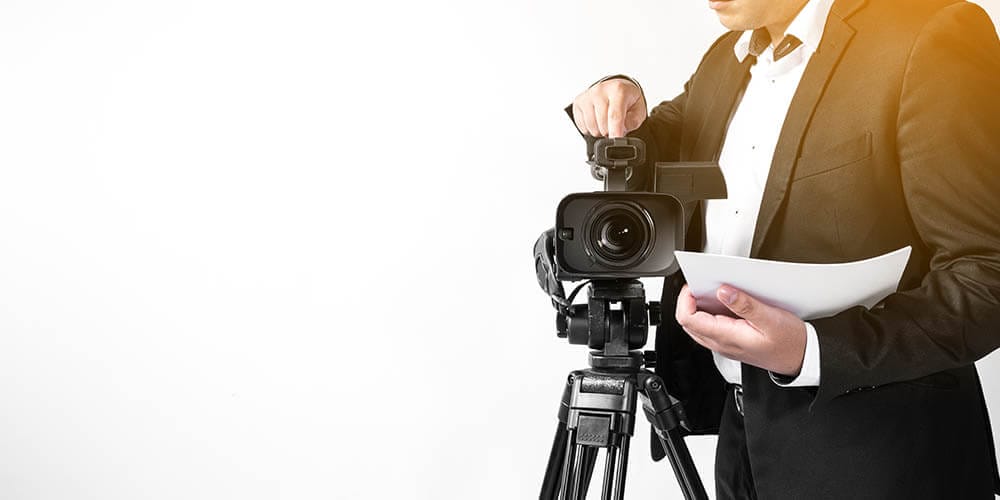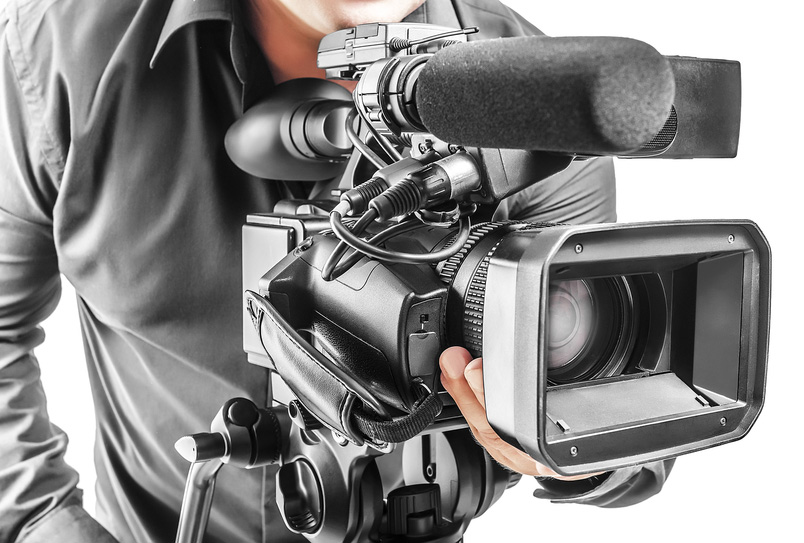The Role of Lawful Videography in Depositions and Tests
Legal videography has emerged as a crucial device in both depositions and tests, giving a diverse method to recording witness statements. As legal specialists progressively recognize its value, it motivates a deeper assessment of exactly how these visual records can influence juror perceptions and trial outcomes.
Significance of Legal Videography
Lawful videography plays a pivotal duty in the paperwork and presentation of depositions and tests. This specific field incorporates technological abilities with legal knowledge to create a reliable document of proceedings that can substantially affect situation outcomes. The aesthetic facet of legal videography enhances the understanding of witness testament, enabling jurors and courts to observe not just the talked words however also the attitude, feelings, and body movement of the witnesses.

The value of lawful videography extends past the courtroom; it likewise plays an essential duty in maintaining proof for future referral, whether for charms or further legal action. As such, its combination into the lawful process is crucial for making certain a reasonable and precise depiction of the truths, inevitably adding to the quest of justice.

Process of Legal Videography
While catching the subtleties of depositions and trials, the procedure of lawful videography entails several essential actions that guarantee premium, precise recordings. An expert lawful videographer prepares by reviewing the case products and comprehending the details needs of the deposition or trial. This prep work consists of acquainting themselves with the individuals and the context, which helps in capturing pertinent information.
On the day of the recording, the videographer sets up the essential tools, which generally includes high-def cameras, microphones, and appropriate lighting. Ensuring optimum angles and audio quality is vital, as it straight affects the performance of the recording. The videographer communicates with attorneys and participants to establish methods, ensuring that every person recognizes the recording process.
Throughout the deposition or test, the videographer thoroughly records the process, paying very close attention to both spoken and non-verbal signs. legal videography. This includes catching the disposition and reactions of witnesses and attorneys. After the session concludes, the videographer may edit the footage for clearness and conformity with lawful requirements, generating an end product that properly mirrors the procedures for future recommendation and usage in legal contexts
Advantages in Depositions
The unification of videography in depositions provides many benefits that improve the general procedure of collecting proof. One key advantage is the capacity to catch witness testaments with visual and auditory integrity, supplying a more accurate representation of the witness's disposition, tone, and body language. This multidimensional method permits attorneys and courts to evaluate trustworthiness better than standard written records alone.
In addition, videographed depositions offer as an effective tool for protecting testimony. Needs to a witness become unavailable for trial, their videotaped deposition can be played in court, making sure that their proof continues to be easily accessible and relevant. This element considerably decreases the threat of losing essential information that could affect case outcomes.
In addition, using legal videography promotes far better prep work for attorneys. Reviewing video footage allows lawful groups to evaluate and refine i was reading this their strategies, identifying staminas and weaknesses in their cases. This primary benefit can cause even more compelling presentations in court.
Finally, videography improves the general expertise of the deposition procedure, instilling confidence in clients concerning the thoroughness of their lawful depiction. By leveraging modern technology, attorneys can dramatically boost the performance of depositions.
Influence On Trials
In numerous trials, the assimilation of videography can substantially affect the discussion of evidence and the court's perception. Lawful videography catches witness testaments and essential proof in a dynamic format, permitting jurors to engage with the product on numerous levels. This aesthetic part enhances the narration facet of a test, providing context and psychological vibration that traditional text-based proof may lack.
Moreover, video clip recordings can act as effective tools for impeachment throughout cross-examination. When disparities occur between a witness's previous declarations and their court statement, video evidence gives an unbiased referral that can sway jurors' opinions. This immediacy and clarity can reinforce the trustworthiness of a celebration's story while simultaneously weakening opposing disagreements.
In addition, making use of videography can aid enhance complicated info, making it extra easily accessible to jurors that may have a hard time to grasp intricate information provided only with spoken testament. By combining visuals with auditory info, legal videography can improve retention and understanding, ultimately affecting the jury's decision-making process. The influence of videography in trials expands beyond mere visual appeals; it plays a crucial function in forming the legal landscape and end results.
Future Trends in Legal Videography
As we look toward the future of legal videography, several arising fads promise to improve its duty within the court room. One significant trend is the combination of artificial knowledge (AI) in video clip evaluation and editing and enhancing - legal videography. AI can streamline the procedure of identifying key moments in recorded depositions, allowing attorneys to quickly access pertinent web content, thus improving efficiency in over at this website case prep work
In addition, the increase of virtual fact (VR) and enhanced fact (AR) modern technologies is anticipated to change how jurors experience proof. By submersing jurors in a simulated environment, these modern technologies can supply a much more extensive understanding of intricate circumstances, resulting in even more enlightened considerations.

Furthermore, the boosting need for remote depositions, sped up by the COVID-19 pandemic, will likely continue. Lawful videographers will certainly require to adjust to new software program and systems to guarantee high-quality recordings in digital setups.
Last but not least, the expanding focus on information security will certainly require stricter procedures for keeping and sharing video clip evidence. As the lawful landscape advances, lawful videographers should remain abreast of these patterns to keep their significance and effectiveness in the judicial procedure.

Verdict
In recap, legal videography offers a crucial feature in the judicial process, improving the integrity of depositions and trials. By catching the subtleties of witness statements, this medium not only protects vital proof but additionally aids in presenting information successfully to jurors. The significance of aesthetic documentation in assessing reputation and promoting cross-examination can not be overstated. As innovation proceeds to advance, lawful videography is poised to further change its function within the click for more info legal landscape.